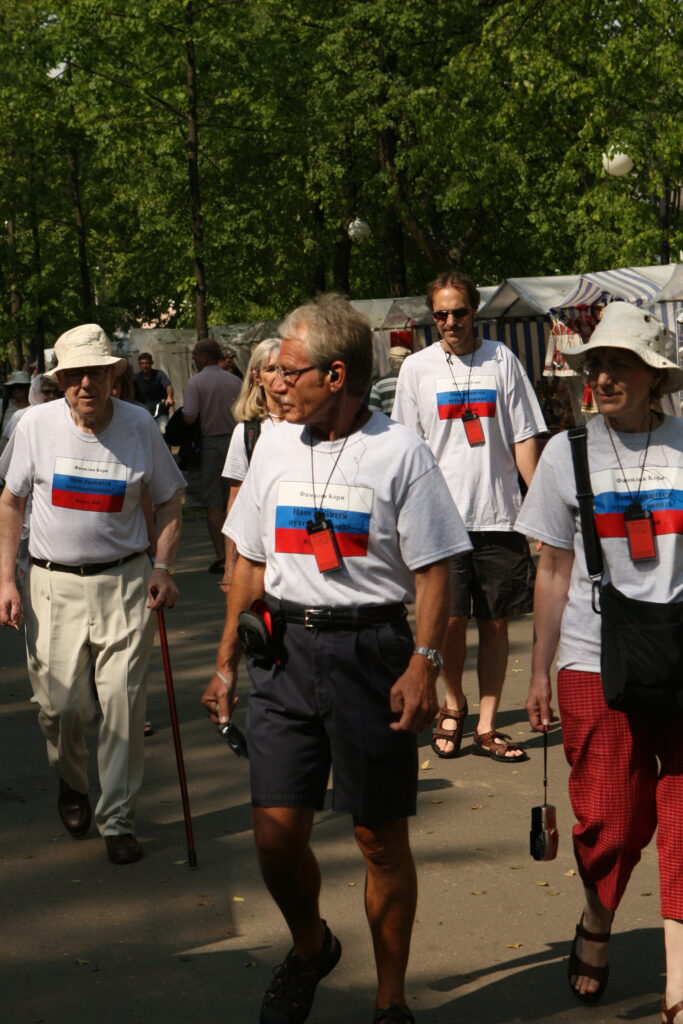50 Famous Russian Sayings and Proverbs
Get ready to add a touch of Russian wisdom to your wardrobe with these 50 Russian sayings and proverbs. We’ve scoured the annals of Russian culture to bring you an eclectic mix of playful sayings and timeless proverbs that will make you smile and spark some fun conversations. These sayings will let you show off your excellent custom products while embracing the wit and passion of the Russian language and insight. Find your perfect proverb and make a bold statement with custom t-shirts, hats, backpacks, activewear, and so much more!
Russian Proverbs About Happiness
Russian Sayings About Life
1. Первый блин—комом.
(Pervyy blin—komom.)
Literal translation: The first pancake is lumpy.
This tasty saying is like saying, “Practice makes perfect.”
2. Работа не волк—в лес не убежит.
(Rabota ne volk—v les ne ubezhit.)
Literal translation: Work isn’t a wolf—it won’t run away into the forest.
This idiom is like saying, “Work will still be waiting for you tomorrow.”
3. Кот наплакал.
(Kot naplakal.)
Literal translation: The cat has cried.
Cat tears aren’t something we see very often, so this saying refers to very little of something. It’s often used in the context of money.
4. Век живи—век учись.
(Vek zhivi—vek uchis’.)
Literal translation: Live for a century, learn for a century.
This proverb is similar to the English saying, “Live and learn.”
5. Слово не воробей: вылетит — не поймаешь.
(Slovo ne vorobey: vyletit — ne poymayesh’.)
Literal translation: A word is not a sparrow: once it flies out, you won’t catch it.
This illustrative proverb is similar to “What’s said can’t be unsaid.”
6. нет худа без добра.
(Net khuda bez dobra.)
Literal translation: There’s no bad without the good.
This proverb shares the same sentiment as “Every cloud has a silver lining.”
7. двумя зайцами погонишься, ни одного не поймаешь.
(Za dvumya zaytsami pogonish’sya, ni odnogo ne poymaesh’.)
Literal translation: If you chase two hares, you will not catch either.
This saying is similar to “You can’t have your cake and eat it too.”
8. Не руби сук, на котором сидишь.
(Ne rubi sukh, na kotorom sidish’.)
Literal translation: Don’t cut the branch you’re sitting on.
This proverb would be like saying, “Don’t bite the hand that feeds you.”
9. Тише едешь, дальше будешь.
(Tishe edesh’, dal’she budesh’.)
Literal translation: The quieter you go, the further you’ll get.
While this saying is slightly different, its English equivalent would be, “Slow and steady wins the race.”
10. На вкус и цвет товарищей нет.
(Na vkus i tsvet tovarishchey net.)
Literal translation: Every man to his own taste.
This saying is equivalent to “Different strokes for different folks.”
Funny Russian Sayings
11. Я тебе покажу, где раки зимуют.
(YA tebe pokazhu gde raki zimuyut.)
Literal translation: I will show you where lobsters (crawfish) spend the winter.
On the surface, this may sound harmless, but it’s actually like saying, “I’ll teach you a lesson,” or the mildly threatening, “I’ll give you something to remember me by.”
12. Козе боян, а овце баян.
(Koze boyan, a ovtse bayan.)
Literal translation: What’s new to a goat is old news to a sheep.
This fun farm-themed saying is similar to “One man’s trash is another man’s treasure.”
13. Дать зуб.
(dat’ zub.)
Literal translation: To give a tooth.
While it may not be obvious, this idiom is similar to the English idiom, “Cross my heart.”
14. И ежу понятно.
(i izhu panyatna.)
Literal translation: Even a hedgehog can understand (this).
No offense to hedgehogs, but this saying is similar to, “It’s a no-brainer” or “This isn’t rocket science.”
15. В шоколаде.
(v shekalade.)
Literal translation: (Everything is) in chocolate.
This idiom is a delicious English equivalent to “be set for life.”
16. В семье не без урода.
(v sim’ye ni bez uroda.)
Literal translation: There’s an ugly person in every family.
While not quite as symbolic, this saying is similar to the English idiom, “There’s a black sheep in every flock,” or “There’s always one bad apple.”
17. Говорят, что кур доят.
(gavaryat, chto kur doyat.)
Literal translation: They say they milk chickens.
This one doesn’t have as close of an English equivalent, but the idea is not to believe everything you hear.
18. Делать из мухи слона.
(Dyelat’ iz mukhi slona.)
Literal translation: To make an elephant out of a fly.
This saying is essentially like saying, “Don’t make a mountain out of a molehill.”
19. Когда рак на горе свистнет.
(Kogda rak na gore svistnyet.)
Literal translation: When the lobster whistles on the mountain.
Another interesting lobster-themed saying, this saying is similar to the English idiom, “When pigs fly.”
Russian Sayings About Love
20. Любовь зла, полюбишь и козла.
(Lyubov’ zla, polyubish’ i kozla.)
Literal translation: Love is so cruel you could fall in love with a goat.
This is a much more illustrative version of the commonly heard, “Love is blind.”
21. Запретный плод сладок.
(Zapretnyy plod sladok.)
Literal translation: The forbidden fruit is sweet.
In terms of love, this saying refers to wanting who you can’t have.
22. Ты луч солнца в пасмурный день!
(Ty luch solntsa v pasmurnyy den’!)
Literal translation: You are a ray of sunshine on a cloudy day!
This saying is familiar to English speakers and lets people know you brighten their days.
23. Любовь – как лодка—на одном весле не уплывешь.
(Lyubov’ – kak lodka: na odnom vesle ne uplyvesh.)
Literal translation: Love is like a boat—you can’t sail away on one oar.
This proverb uses the metaphor of being at sea to explain that a relationship takes two.
24. Любовь – это как вино, с годами она крепчает.
(Lyubov’ – eto kak vino, s godami ona krepchayet.)
Literal translation: Love is like wine—it becomes stronger with age.
This proverb puts love in the context of “aging like a fine wine.”
25. Любовь глазами не видно, а она есть.
(Lyubov’ glazami ne vidno, a ona yest’.)
Literal translation: Love is not seen with the eyes, but it exists.
This proverb tells us that love is everywhere, even though we may not see it.
26. Любовь не знает закона.
(Lyubov’ ne znayet zakona.)
Literal translation: Love knows no law.
This proverb would be equivalent to the English saying, “Love knows no bounds.”
27. Любовь нечаянно приходит, а уходит неожиданно.
(Lyubov’ nechayanno prikhodit, a ukhodit neozhidanno.)
Literal translation: Love comes unexpectedly but departs surprisingly.
This proverb tells us how love can catch us by surprise.
28. Любовь к семье – главное счастье.
(Lyubov’ k sem’ye – glavnoye schast’ye.)
Literal translation: Love for family is the greatest happiness.
Family is hugely important in Russian culture.
29. Любовь к сердцу не пришьешь.
(Lyubov’ k serdtse ne prish’yosh.)
Literal translation: You can’t sew love to the heart.
This proverb is equivalent to saying, “Love can’t be forced.”
Old Russian Proverbs
30. Волко́в боя́ться — в лес не ходи́ть.
(Volkóv boyát’sya — v les ne khodít’)
Literal translation: If you’re scared of wolves, don’t go in the woods
This proverb came from a time when Russians would still venture into the woods for food. It can be like saying, “If you can’t stand the heat, get out of the kitchen.”
31. Если вы собираетесь называть себя молочным грибом, лезьте в корзину!
(Yesli vy sobirayetes’ nazyvat’ sebya molochnym gribom, lez’te v korzinu!)
Literal translation: If you are going to call yourself a milk-mushroom, get in the basket!
This expression would be the English equivalent to “Put your money where your mouth is.”
32. В тихой лагуне обитают черти.
(V tikhoy lagune obitayut cherti.)
Literal translation: In a quiet lagoon, devils dwell.
This evocative proverb would be equivalent to the English idiom, “Still waters run deep.”
33. Без усилий и рыбку из пруда не вытащишь.
(Bez usiliy i rybku iz pruda ne vytashchish’.)
Literal translation: Without effort, you won’t even pull a fish out of a pond.
This fishing-themed proverb would be like saying, “No pain, no gain.”
34. Волка ноги кормят.
(Volka nogi koryat.)
Literal translation: A wolf is fed by its legs.
This proverb reminds us that we have to work for what we want.
35. В чужой монастырь со своим уставом не ходят.
(V chuzhoy monastyr’ so svoim ustavom ne khodyat.)
Literal translation: Don’t bring your own rules into someone else’s monastery.
This older proverb is equivalent to the saying, “When in Rome, do as the Romans do.”
36. Утро вечера мудренее.
(Utro vechera mudrenee.)
Literal translation: The morning is wiser than the evening.
While the morning itself may not be wiser, we are often wiser after we “sleep on it.”
37. Глаза боятся, а руки делают.
(Glaza boyatsya, a ruki delayut.)
Literal translation: Eyes fear, but hands do.
This idiom would be equivalent to the English saying, “Don’t be afraid to get your hands dirty.”
38. Чужая душа – потемки.
(Chuzhaya dusha – potemki.)
Literal translation: Another person’s soul is darkness.
This proverb is similar to saying that you never really know someone’s true intentions.
39. Друг познается в беде.
(Drug poznayetsya v bede.)
Literal translation: A friend is known in times of trouble.
As it goes in many cultures, true friends are there when you need them.
40. Мно́го бу́дешь знать, ско́ро соста́ришься.
(Mnógo búdesh’ znat’, skóro sostárish’sya.)
Literal translation: If you know too much, you would get old very quickly.
This is perhaps a more subtle way of saying, “Curiosity killed the cat.”
Russian Proverbs About Happiness
41. Что имеем – не храним, потерявши – плачем.
(Chto imeem – ne khranim, poteryavshi – plachem.)
Literal translation: We don’t cherish what we have; we cry when we lose it.
This saying is similar to the English saying, “You don’t know what you’ve got ‘til it’s gone.”
42. Счастье не в деньгах.
(Schast’ye ne v den’gakh.)
Literal translation: Happiness is not in money.
This saying is equivalent to “Money can’t buy happiness.”
43. Счастье – быть самим собой.
(Schast’ye – byt’ samim soboy.)
Literal translation: Happiness is being yourself.
This proverb speaks to the importance of being your authentic self and not following the crowd.
44. Счастье – это быть любимым.
(Schast’ye – eto byt’ lyubimym.)
Literal translation: Happiness is being loved.
What can bring more happiness than love?
45. Счастье не в куче денег, а в добром сердце.
(Schast’ye ne v kuche deneg, a v dobrom serdtse.)
Literal translation: Happiness is not in a pile of money but in a kind heart.
Another similar saying to “Money can’t buy happiness,” this proverb speaks to the happiness we bring each other by being kind.
46. Радуйся малому, и жить станет веселее.
(Raduysya malomu, i zhit’ stanet vesel’ye.)
Literal translation: Find joy in small things, and life will become happier.
This proverb is similar to saying, “Enjoy the small things” or “Stop and smell the roses.”
47. Настоящее счастье – это здоровье близких.
(Nastoyashcheye schast’ye – eto zdorov’ye blizkikh.)
Literal translation: True happiness is the health of loved ones.
As stated before, family is a big part of Russian culture, so they deeply value each other’s health.
48. Чем меньше зависит от других, тем больше счастья.
(Chem men’she zavisit ot drugikh, tem bol’she schast’ya.)
Literal translation: The less you depend on others, the happier you will be.
This proverb speaks to the importance of self-reliance.
49. Счастье – это находить удовольствие в том, что есть.
(Schast’ye – eto nakhodit’ udovol’stvie v tom, chto yest’.)
Literal translation: Happiness is finding pleasure in what you have.
This proverb speaks to the relationship between happiness and gratitude.
50. Улыбнись миру, и мир улыбнется тебе.
(Ulybnis’ miru, i mir ulybnetsya tebe.)
Literal translation: Smile at the world, and the world will smile at you.
This saying is a more positive spin on the English saying, “Smile, and the world smiles with you.”













Leave a Comment